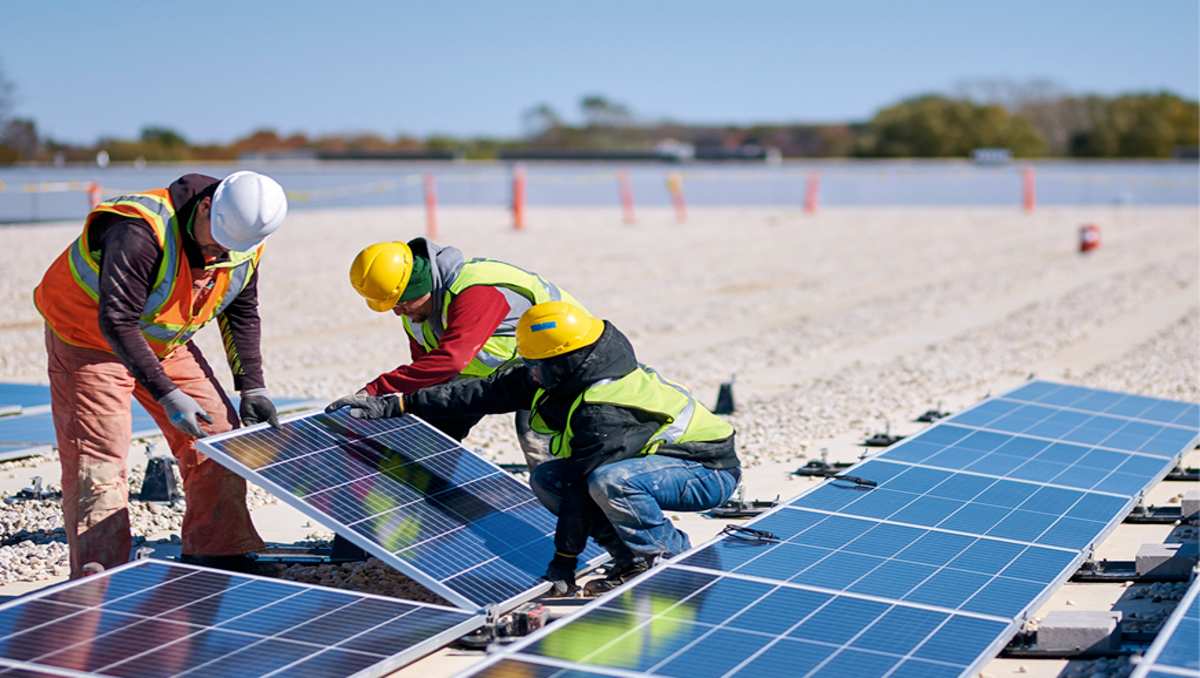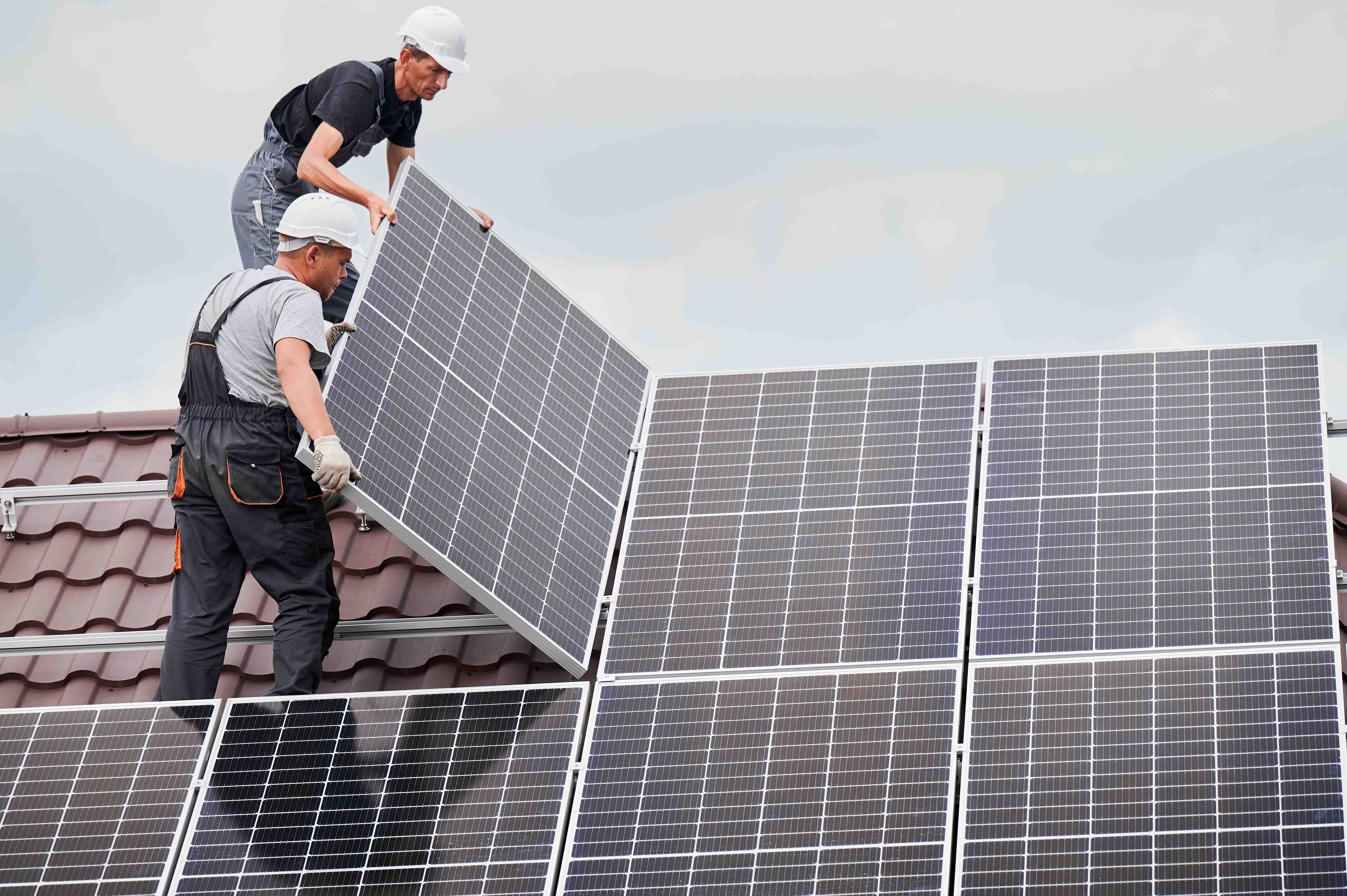Why Solar Panels for Business are a Good Investment: Future Advantages and Budget-Friendly
Why Solar Panels for Business are a Good Investment: Future Advantages and Budget-Friendly
Blog Article
Just How to Pick the Right Solar Power Installation for Your Power Demands
Picking an appropriate solar power setup requires a methodical strategy that begins with a clear understanding of your energy consumption patterns and expected future needs. Elements such as the kind of solar modern technology, setup expenses, and available motivations play crucial roles in making a notified choice.
Assess Your Energy Requirements
Examining your power requires is a crucial initial step in the solar power installment process. Recognizing your existing and future power intake will direct the design of a reliable solar system tailored to your needs.
Consider seasonal variants in power usage, as certain months might demand more power as a result of home heating or air conditioning demands. In addition, examine any scheduled modifications in way of life or property, such as the purchase of electric cars or home expansions, which may enhance your energy needs in the future.
When you have a comprehensive understanding of your energy consumption, you can figure out the proper solar capability required to meet those needs. This assessment not just aids in sizing the solar setup but likewise notifies decisions about power storage space services and potential grid link needs. solar photovoltaic. Eventually, accurately determining your energy requires makes sure that your solar power system runs successfully, delivering the advantages of renewable power abreast with your intake patterns

Evaluate Solar Innovation Options
When taking into consideration a solar power setup, it is necessary to review the different solar technology alternatives offered to ensure the system aligns with your power needs and spending plan. The main technologies consist of monocrystalline, polycrystalline, and thin-film solar panels, each offering distinctive benefits and drawbacks.
Monocrystalline panels are understood for their high performance and efficiency in minimal area, making them appropriate for property setups with much less roofing location. Nonetheless, they have a tendency to be much more expensive. Polycrystalline panels, while somewhat much less efficient, are normally much more cost effective and can be a great option for bigger installations where area is not a constraint. Thin-film solar panels are lightweight and adaptable, perfect for non-traditional surface areas, however they generally have reduced efficiency and require even more space to generate the exact same energy output.
In addition to panel types, take into consideration solar inverters, which transform the direct present created by the panels right into alternating existing for home use. String inverters, microinverters, and power optimizers each have distinct benefits that can impact system performance. Assessing these alternatives will aid you make an enlightened decision that satisfies your energy demands successfully.
Consider Installment Prices
Recognizing setup prices is essential for any individual taking into consideration a solar power system. These prices can differ significantly based upon a number of aspects, including system dimension, kind of panels, and setup intricacy. A regular look at this now domestic solar installment might range from $15,000 to $30,000 before rewards, which can be a substantial in advance financial investment.
To accurately analyze installment expenses, it is vital to obtain detailed quotes from numerous solar providers. These quotes ought to damage down the expenses of devices, labor, allows, and any added accessories needed for the setup. Pay very close attention to the top quality of materials being used, as higher-quality panels and inverters can cause far better efficiency and durability, possibly countering greater preliminary costs.
Additionally, consider the long-lasting implications of installment expenses. A less expensive installment may save money upfront but could result in higher maintenance costs or lowered energy production over time. It is also a good idea to assess financing options, such as solar loans or leases, which can impact your general economic dedication.
Research Study Citizen Motivations
Checking out go regional motivations basics can considerably influence the overall expense of a solar energy installment. Numerous regions offer a range of economic rewards focused on advertising renewable energy usage, making solar power more obtainable and economical for homeowners and organizations alike.
These motivations might include government tax credits, state discounts, and neighborhood energy business programs that provide cash incentives or net metering alternatives. For example, the Federal Financial Investment Tax Obligation Debt (ITC) permits you to subtract a considerable percent of your solar installation expenses from your federal tax obligations. State-specific rewards can further boost these cost savings, typically in the type of direct cash discounts or tax obligation credit scores.
In addition, some regional federal governments might supply property tax exemptions for solar setups, making certain that your financial investment does not raise your property tax responsibility. Looking into these motivations can reveal substantial financial savings, which can influence your choice on the size and kind of planetary system to install.

Choose a Credible Installer
Picking a reputable installer is critical to ensuring the success and long life of your solar energy system. The installment process considerably influences the efficiency and efficiency of your solar panels, making it imperative to pick a service provider with a tested track document. Begin by researching neighborhood installers with on-line reviews and testimonials. Sites such as the Better Company Bureau can offer understanding into client fulfillment and solution reliability.
Following, confirm the installer's credentials, including licenses, accreditations, and insurance policy. A trustworthy installer needs to hold qualifications from identified companies, such as the North American Board of Licensed Energy Experts (NABCEP), indicating a high degree of competence. In addition, ask about the installer's experience with similar projects, specifically in your location, as regional environment and guidelines can affect setup techniques.
Demand several quotes and compare them not only on cost but additionally on the high quality of equipment and warranties supplied. A trustworthy installer should provide clear information concerning their products and services, aiding you make an educated choice. By spending time in choosing a trusted installer, you will certainly enhance the total effectiveness and toughness of your solar energy system.
Conclusion
To conclude, selecting the proper solar power setup demands a thorough assessment of energy needs, an understanding of offered solar technologies, and a cautious factor to consider of installment prices. Exploring local incentives can improve financial advantages, while choosing a trusted installer makes certain top quality handiwork and reliability. solar photovoltaic. By carefully examining these variables, individuals can accomplish an optimal solar solution that satisfies both present and future energy demands, ultimately adding to lasting power methods and expense financial savings gradually
Report this page